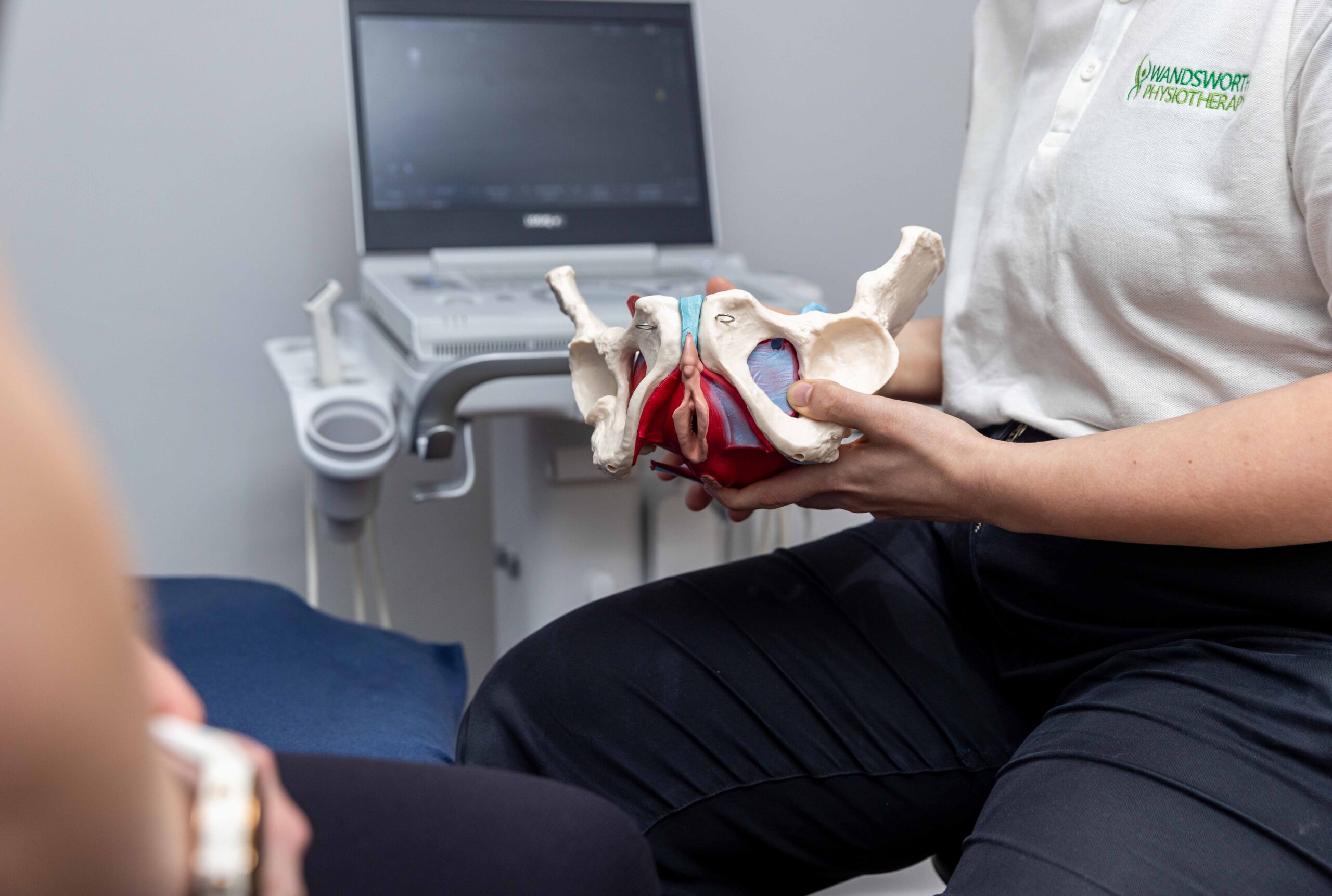
You’re pregnant with your first or second child, your friends are having babies and the hot topic of discussion is all about the birth process, including the scary things that might happen to your body during and after giving birth. You hear a lot about rectus diastasis, episiotomy, prolapse, pelvic girdle pain, incontinence or tears and C sections from your friends, your NCT group or midwife, but you really don’t understand what all of these terms are, there is not a lot of information out there for you and you’re concerned about what’s to come.
Rest assured we are here to help you. Women’s Health is a specific branch of Physiotherapy and Osteopathy aimed at women’s obstetrics and gynaecology problems. We can help you whether you are conceiving or pregnant, a new mum, recovering from Caesarean section or other gynaecological surgery or experiencing any other pelvic floor problems such as urinary incontinence or prolapse.
Are you struggling to conceive? You may be trying naturally or having IVF, both of which can be a long and frustrating process. We can help by offering you Nutritional Therapy, Acupuncture or Relaxing Swedish massage that can redeuce stress and create balance and harmony in your body to create the right environment for a successful conception. We can also help you find ways to overcome painful intercourse.
Are you starting to suffer lower back pain or pelvic girdle pain? You’re trying to carry on and not let your bump hinder your lifestyle. You like to exercise and do fitness classes with your friends, but as your bump gets biggers it’s slowing you down.
During pregnancy 1 in 3 women experience low back pain, and 1 in 5 experience pelvic girdle pain. The hormones that circulate during pregnancy make the spinal and pelvic ligaments lax to enable the babies head to pass through the birth canal. This can cause pelvic instability and pain in the sacroiliac joints, lower back and pubic symphasis (the front of the pelvis).
At Wandsworth Physiotherapy and Osteopathy we can help you get your pelvic girdle, low back pain or upper back and rib pain under control during pregnancy. This can be achieved with spinal mobilisation, pregnancy massage, acupuncture and the safe and effective use of core stability exercises during our Pilates sessions.
We can teach you specific, targeted pelvic floor and core stability home exercises that can significantly improve the discomfort you feel whilst pregnant and give you advice on how to safely stay active up to your due date.
All my friends were fine, why am I the only one like this? None of my friends were incontinent. They have a flat tummy again. No one else has stretch marks. All my friends are having sex again apart from us. I’m the only one in our NCT group with a prolapse. My friend is exercising again so soon after her C section…
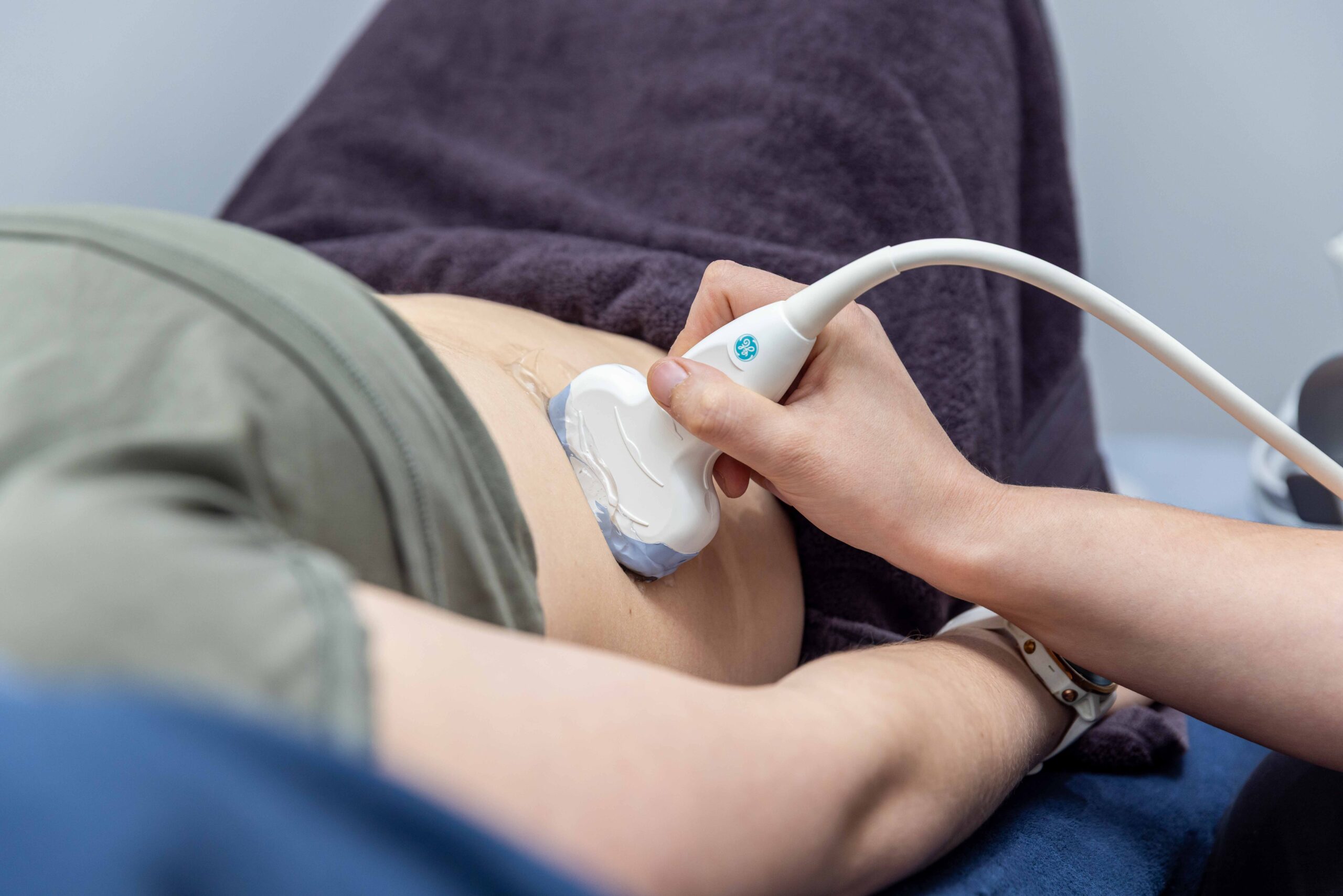
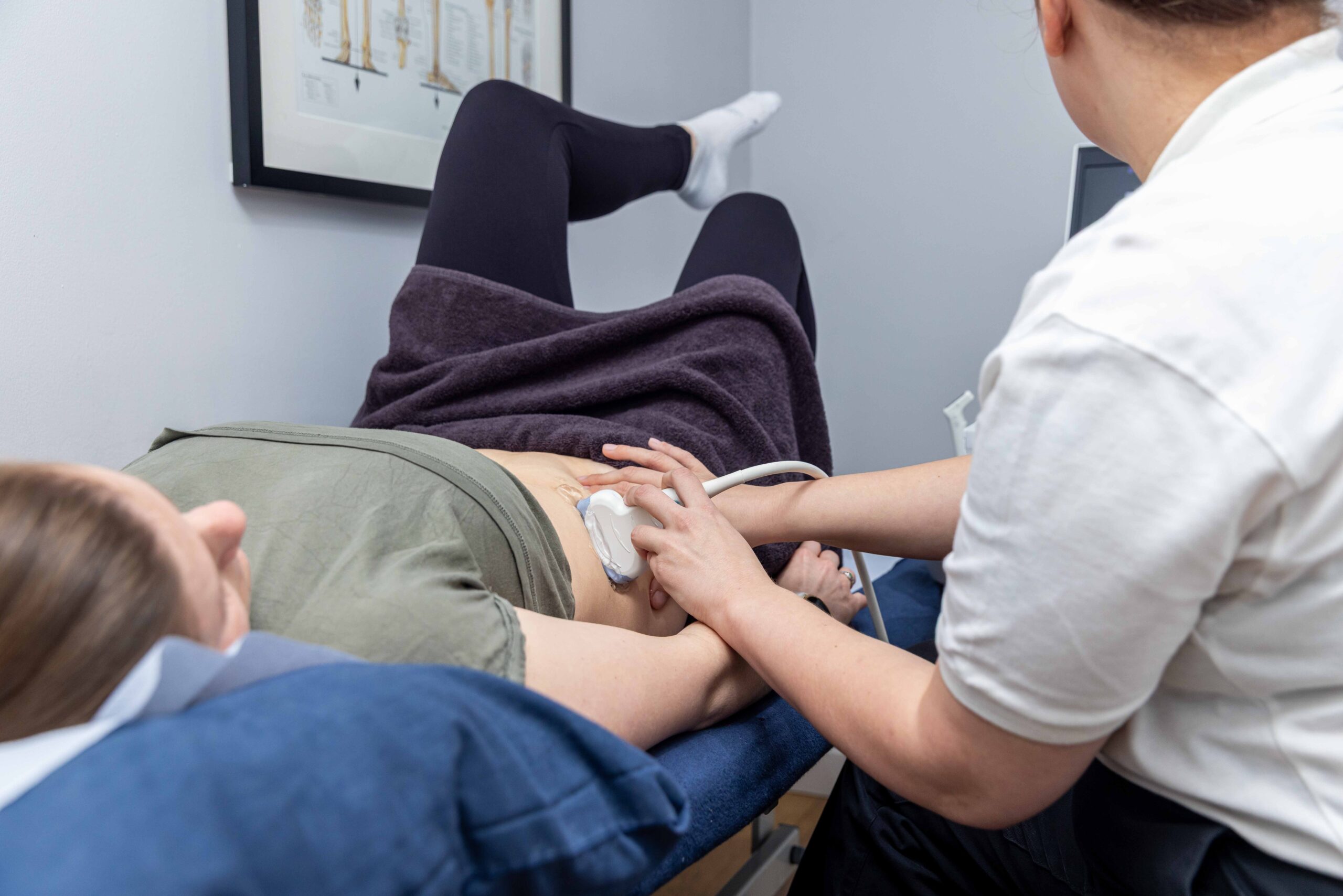
We guarantee you that you are not alone, we hear this all the time at Wandsworth Physiotherapy and Osteopathy in our POST-natal Check-up appointments. All the women we see express these and other concerns and we encourage them to talk about their symptoms and experiences with us and their friends.
Once YOU start talking about your experiences you’ll feel the weight lift from your shoulders and you’ll probably also hear some of your friends also had similar experiences but were too embarrassed to talk about their incontinence or prolapse for example. It’s normal to feel anxious about your recovery and to compare yourself to others but everyone progresses at different trajectories and we can reassure you that what you are feeling is normal and we can help guide you back to feeling better.
Once your baby has arrived and is healthy it’s normal to also want to regain your health and your figure. Don’t feel guilty about this. Your body has gone through a huge and stressful change and you also need some love and attention, and time for your body to heal. You also need time to look after your mental health and, sometimes, come to terms with and accept that your body may have changed forever.
We are here to help guide you back to health and help you get back to things you love doing, with and without your new bundle of joy.
We’ll fill the information void that exists and start the conversation with you about Women’s Health. You’ll have lots of questions running through your mind… Will my diastasis heal? When can I squat, do yoga or BarreCore? Can stress incontinence be treated? When can I run again? Are pessaries useful for a prolapse?…
We’ll answer all these questions as well as check your rectus diastasis and pelvic floor function to help prevent incontinence and prolapse, we’ll advise you on how to safely manage a tear or C section and we’ll give you expert advice and guidance on your journey to get your body back in shape and lose the baby weight.
At Wandsworth Physiotherapy and Osteopathy we don’t just treat women who are pregnant or have just given birth. In the UK 32% of all women experience some urinary incontinence, with 45% suffering from urinary incontinence up to seven years after giving birth. We treat women who have never had children and women who have older children who are also suffering pelvic girdle, lower back pain or other Women’s Health issues.
We can teach you specific, targeted pelvic floor and core stability home exercises that can significantly improve the discomfort you feel and give you advice on how to safely stay active up to and including going through the menopause, such as advice on general weight management and maintaining healthy bone density.
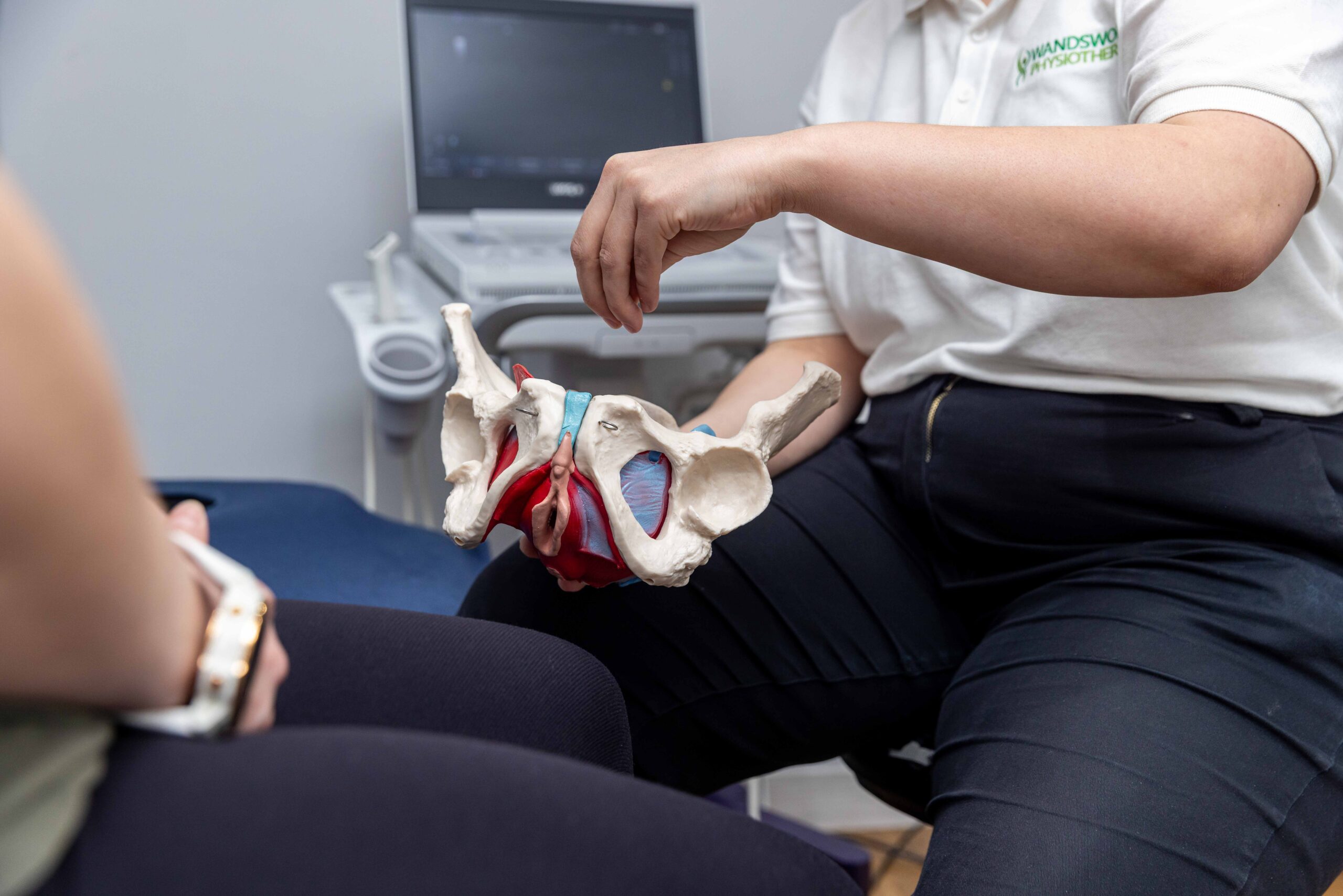
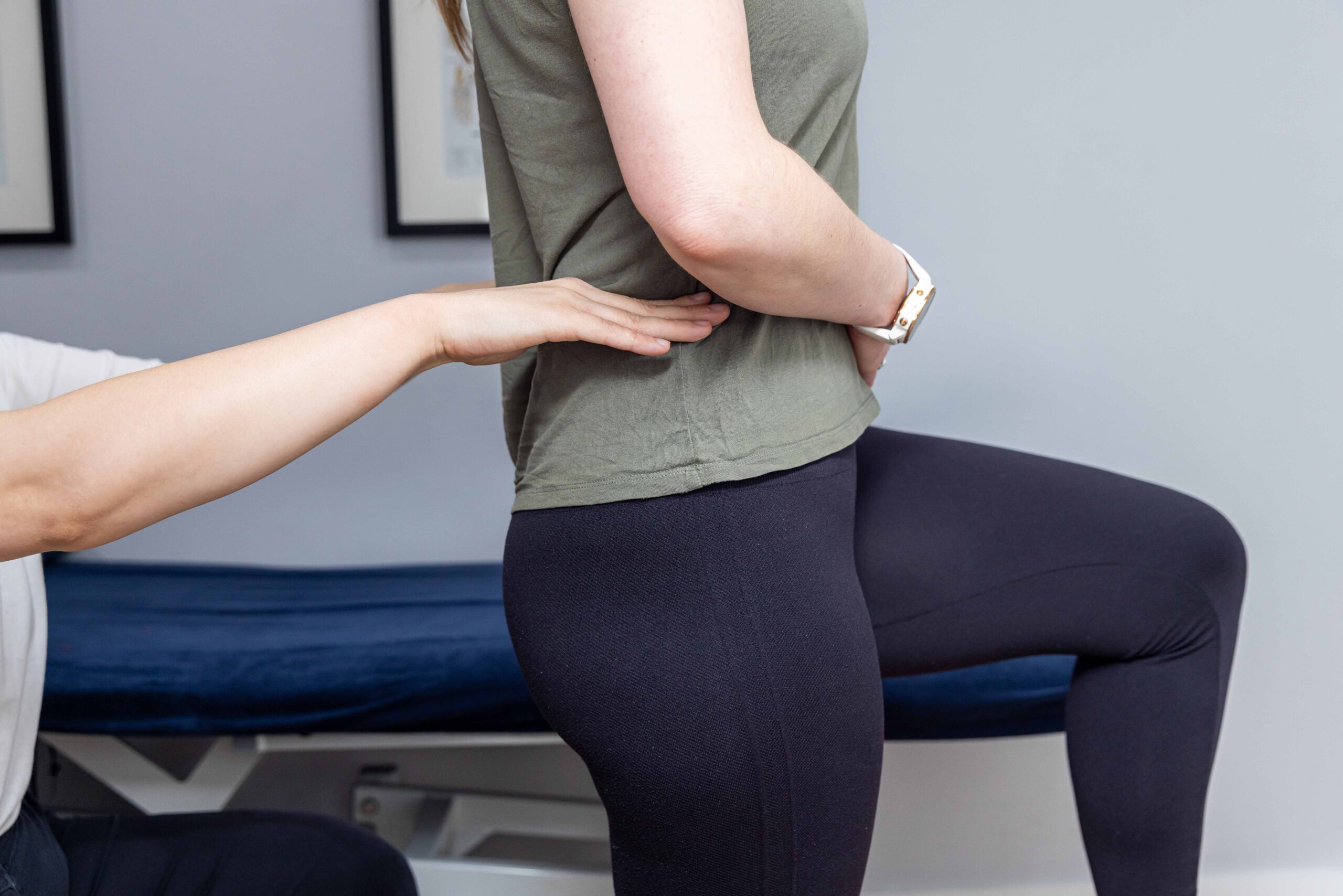
Every woman needs to have a POST-natal Check-up 6 weeks after vaginal delivery. It’s extremely common to suffer pelvic floor trauma during birth and if you don’t rehabilitate these muscles after having your baby you are much more likely to suffer from a number of problems described below.
During a Women’s Health POST-natal Check-up we will assess your posture, lower back and pelvic movements, your breathing patterns, your abdominals for rectus diastasis, and the function of your pelvic floor muscles – this may involve an internal assessment of your pelvic floor (NOT ALL OUR THERAPISTS DO THIS), but is not compulsory if you are uncomfortable with this.
After your assessment we will design a treatment and rehabilitation plan to get you back to full function.
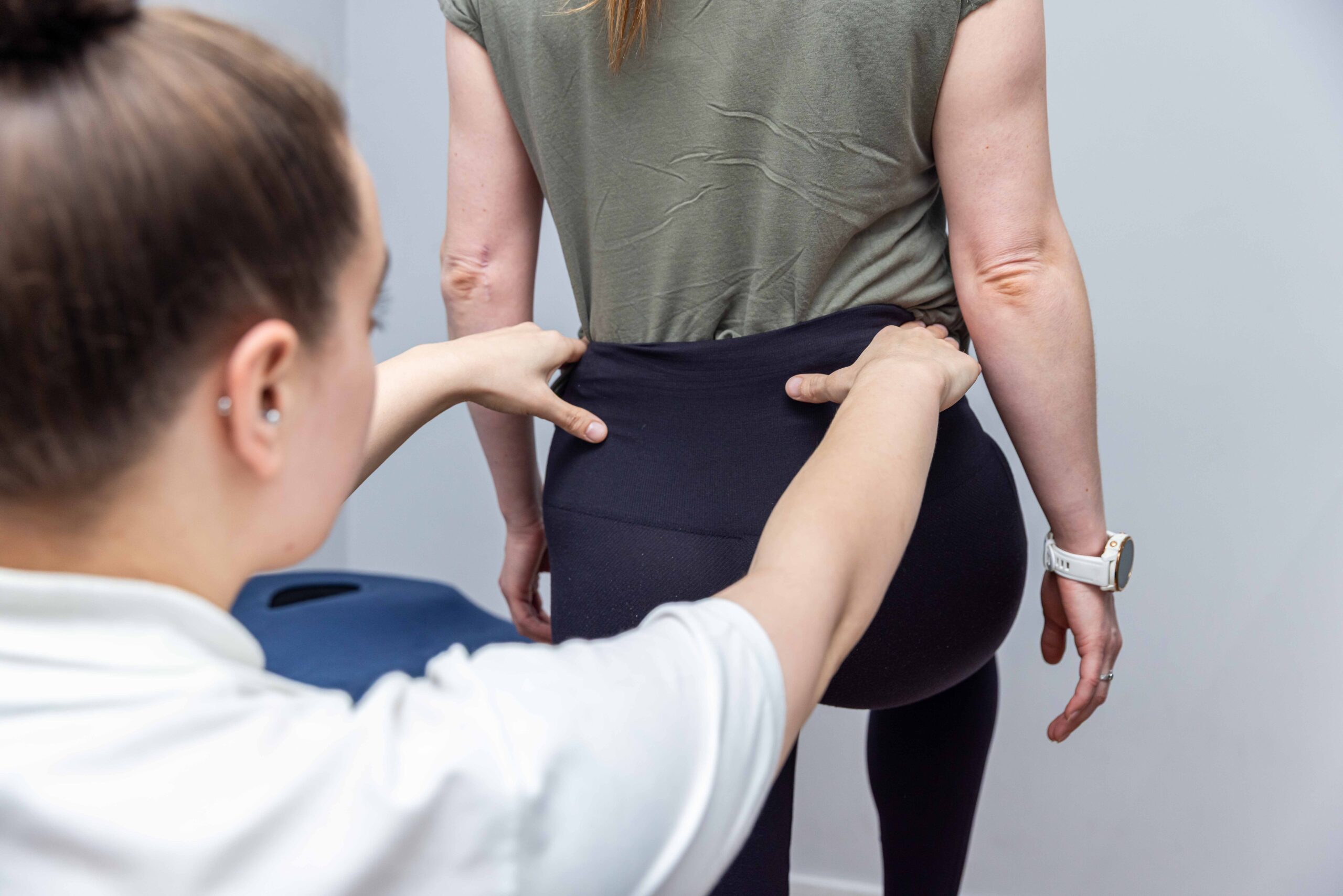
Stress incontinence is where you leak when you cough or sneeze, lift, twist or try to get back to sports or the gym. 32% of all women in the UK experience some urinary incontinence, with 45% suffering from urinary incontinence up to seven years after giving birth. You may need to start using pads to combat this embarrassing problem, however this needn’t be the case. Assessment and rehabilitation of the pelvic floor muscle can get this problem under control.
The pelvic floor muscles are intimately linked to the other spinal stabilising muscles and any dysfunction in this system can alter movement, cause joint instability and lead to pain. We will assess your pelvic and spinal movements and core stability function. We can treat areas of stiffness and dysfunction and give you individually tailored core stability home exercises.
This is where the abdominal muscles separate whilst you are pregnant. Some research shows that 100% of women have diastasis at 38 weeks. This can lead to constipation / incontinence, and instability and poor function of the spine and pelvis. Our Women’s Health Team can assess this for you and give you a safe, structured and progressive solution for your recovery.
There are different types of prolapse graded 1-4. The rectum can prolapse into the vagina (rectocele), the bladder can prolapse into the vagina (cystocele) or the uterus can prolapse into the vagina. Up to 50% of mums who had a natural birth will suffer from a pelvic organ prolapse. A Women’s Health Assessment can identify if you have a prolapse and can give you the right treatment and exercises where appropriate or refer you to our in-house GP partners at The London Doctors Clinic.
If you have had a Caesarean section you will have a scar just above the pubic area that will cause abdominal muscle dysfunction, or if you had an episiotomy your pelvic floor muscles will not function properly. The abdominals and pelvic floor are important for spinal stabilisation and rehabilitating the pelvic floor abdominals as well as massage and using acupuncture on the C section scar may be warranted. We recommend you book a Women’s HealthPOST-natal Check-up 7-9 weeks after your surgery.
We will also advise you on safe and effective exercises and help you regain function post pregnancy to regain control of the pelvic floor and abdominal muscles.
Perhaps you are getting wrist pain lifting and carrying your new born or upper back and neck pain from breast feeding.
Physiotherapy or Osteopathy including joint mobilisation, massage and strength exercises will help get these problems under control.
Trustindex verifies that the original source of the review is Google. I had back pain (which I initially thought was hip pain). My pain subsided with the exercises prescribed, and was a massive fan of Nuzhat Shaikh because she responded positively to my curiosity about human anatomy. I feel confident that I can manage my exercise load without aggravating my back, because I understand the signals my body is giving me better!Trustindex verifies that the original source of the review is Google. I had a great experience with my physiotherapy sessions. Shreya was knowledgeable, attentive, and tailored the treatment to my specific needs. I noticed real improvement after just a few sessions. Highly recommend for anyoneTrustindex verifies that the original source of the review is Google. I sought help from Wandsworth Physiotherapy (Khushboo in particular) to treat osteoarthritis in my knee. I was pleasantly surprised by how quickly the treatment took to start working. Khushboo customised her treatment and exercises to my capabilities and abilities. All in all a very positive experience. I would highly recommend WP.Trustindex verifies that the original source of the review is Google. Amazing sports massage! Helped with my ITB issues before a half marathon. The staff were lovely and very knowledgeable - would high recommend!Trustindex verifies that the original source of the review is Google. I am currently seeing Prarthi for slipped disc and sciatica related pain. Every session makes a difference and 3 weeks in and my pain and overall mobility is much better. Highly recommend.Trustindex verifies that the original source of the review is Google. Had the best session with Andreas. He’s understood my back pain issues and has suggested a treatment plan that is already paying off after just one session.Trustindex verifies that the original source of the review is Google. Helped fix my lower back pain last year, highly recommend.Trustindex verifies that the original source of the review is Google. I recently had a physio appointment with Shreya. She was very warm, friendly and professional. She managed to diagnose an issue with my shoulder, which I have had for many years. Following the suggested exercises there has already been a noticeable improvement.Google rating score: 4.9 of 5, based on 396 reviewsVerified by TrustindexTrustindex verified badge is the Universal Symbol of Trust. Only the greatest companies can get the verified badge who has a review score above 4.5, based on customer reviews over the past 12 months. Read more
How can we assist?